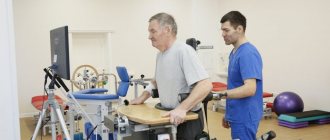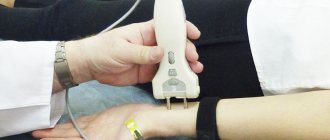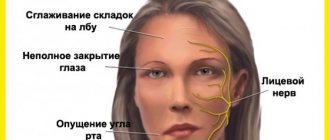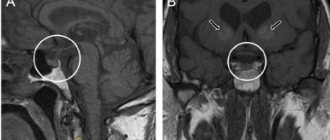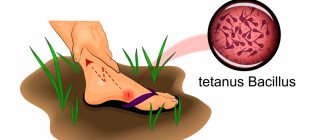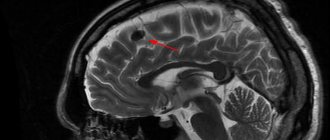Diagnostics
The initial diagnosis of meningococcal meningitis can be made by clinical examination followed by a spinal tap to identify purulent cerebrospinal fluid. Sometimes bacteria can be seen when cerebrospinal fluid is examined under a microscope. The diagnosis is supported or confirmed by growing bacteria from cerebrospinal fluid or blood samples based on an agglutination test or polymerase chain reaction (PCR). To determine infection control measures, it is important to identify serogroups and perform antibiotic susceptibility testing.
Prevention
Vaccination
Licensed vaccines have been used to combat meningococcal disease for more than 40 years. During this time, there have been three major improvements in terms of strain coverage and vaccine availability, but a universal vaccine against meningococcal meningitis has still not been developed. Vaccines are effective against specific serogroups, and the duration of their protection varies.
There are three types of vaccines:
- Polysaccharide vaccines are used primarily in Africa in response to disease outbreaks:
They are divalent (groups A and C), trivalent (groups A, C and W) or tetravalent (groups A, C, Y and W).
- Polysaccharide vaccines are not effective in children under 2 years of age.
- The vaccine is valid for three years, but vaccination does not lead to herd immunity.
- Such vaccines allow the formation of long-term immunity (over 5 years), prevent the transmission of infection and lead to the formation of collective immunity.
monovalent (group C),
Chemoprophylaxis
Prompt prophylactic administration of antibiotics to persons who have been in close contact with the patient reduces the risk of transmission of infection.
- Outside the African “meningitis belt,” chemoprophylaxis is recommended for family members of the patient who were in close contact with him.
- In the “meningitis belt,” chemotherapy for persons who were in close contact with the patient is recommended in the absence of an epidemic.
The preferred antibiotic is ciprofloxacin, and the alternative is ceftriaxone.
Vaccines against meningococcal disease
The effectiveness of vaccination against meningococcal infection is almost 90%. The frequency, the need for re-vaccination, as well as age restrictions depend on the characteristics of the vaccine. Today, among the drugs you can find Mencevax ACWY, Menactra, Bexero, domestic ones - meningococcal A, A+C.
In a number of countries, vaccination against meningococcus is mandatory and is recommended by WHO. In Russia, vaccination against this infection is not yet included in the National Vaccination Calendar; budget funds are allocated only for conscripts and to eliminate outbreaks. Therefore, children, who are at the highest risk, today can be protected by vaccination only if their parents take care of it. Whether to build immunity from meningococcus in your child in advance or to believe that trouble will pass by is something that everyone decides individually. But, given the frequent cases of fulminant infection, the high risk of developing serious complications and even death, it is worth thinking about this issue in advance. Indeed, in most cases, parents who were faced with this terrible disaster either did not know about the existence of vaccination, or believed that their child was unlikely to encounter this infection, or postponed vaccination until better times...
"ASKO-MED" invites everyone to be vaccinated against meningococcal infection; the "MENAKTRA" vaccine is available. You can make an appointment for vaccination by phone: 8 800 555 84 09.
How does meningococcal infection manifest?
Symptoms depend on the form of infection; When carried, the bacterium can only be detected using laboratory analysis, since there are no external signs. In other cases, symptoms may be as follows:
- acute nasopharyngitis – headache, runny nose or nasal congestion, weakness, increased body temperature;
- meningitis - a sharp increase in temperature, severe pain in the head, vomiting, pulling the legs towards the stomach, the inability to lower the neck and others characteristic of this disease;
- blood poisoning - a sharp increase in temperature, headache, confusion, muscle aches, rashes of varying sizes (most often on the lower part of the body);
- meningoenephalitis - symptoms similar to meningitis, various rashes on the skin and/or mucous membranes
A story from life! Muscovite Yana Savchenko’s 5-year-old daughter died of meningitis in January 2021. Mom and daughter were returning home by train. The girl’s temperature quickly rose to 41˚, her throat turned red, and her body took on the “coping dog” pose (with her legs pressed to her stomach). Upon arrival in Moscow, the child was immediately taken to the infectious diseases hospital, but after some time she died. Everything happened within 24 hours.
There is a test for mengococcal rash. You need to press the side of the glass against the rash-covered skin. It is important that you see the rash through the walls of the glass. If the rash is not visible when pressed, it is not meningococcal.
ATTENTION! Due to the high risk of serious complications and even death, at the slightest suspicion of meningococcal infection, you should immediately consult a doctor! Diagnosis is carried out by laboratory examination!
Treatment
Meningococcal disease is potentially fatal and should always be treated as a medical emergency. The patient must be admitted to a hospital or health center, but does not need to be isolated. Appropriate antibiotic treatment should be started as early as possible, ideally immediately after a lumbar puncture if such a puncture can be performed immediately. If treatment is started before CSF testing, growing bacteria from the CSF and confirming the diagnosis may be difficult. However, the need to confirm the diagnosis should not be a reason for delaying treatment.
The infection can be treated with a range of antibiotics, including penicillin, ampicillin and ceftriaxone. In epidemic settings in areas of Africa with weak health infrastructure and limited resources, ceftriaxone is the drug of choice.
